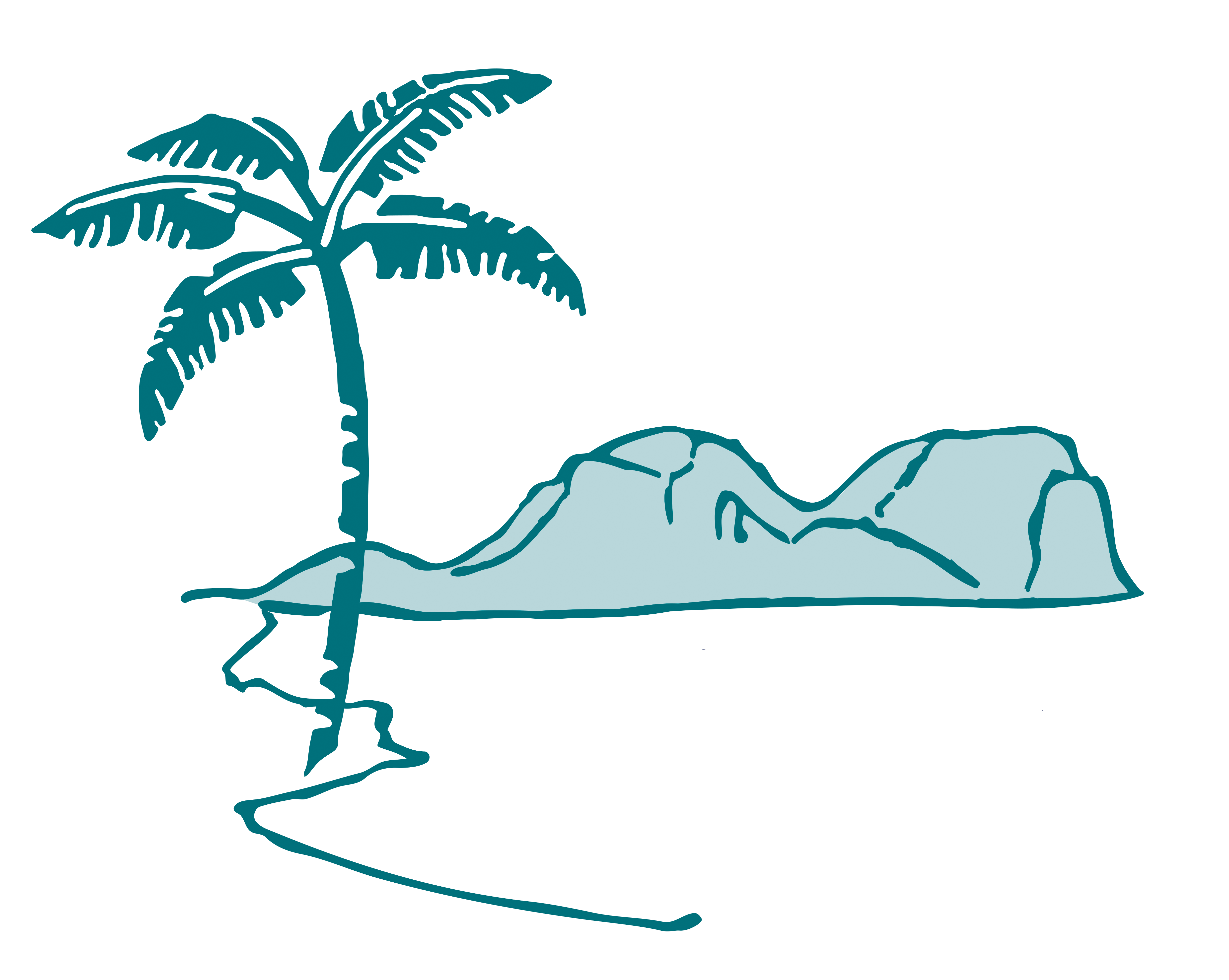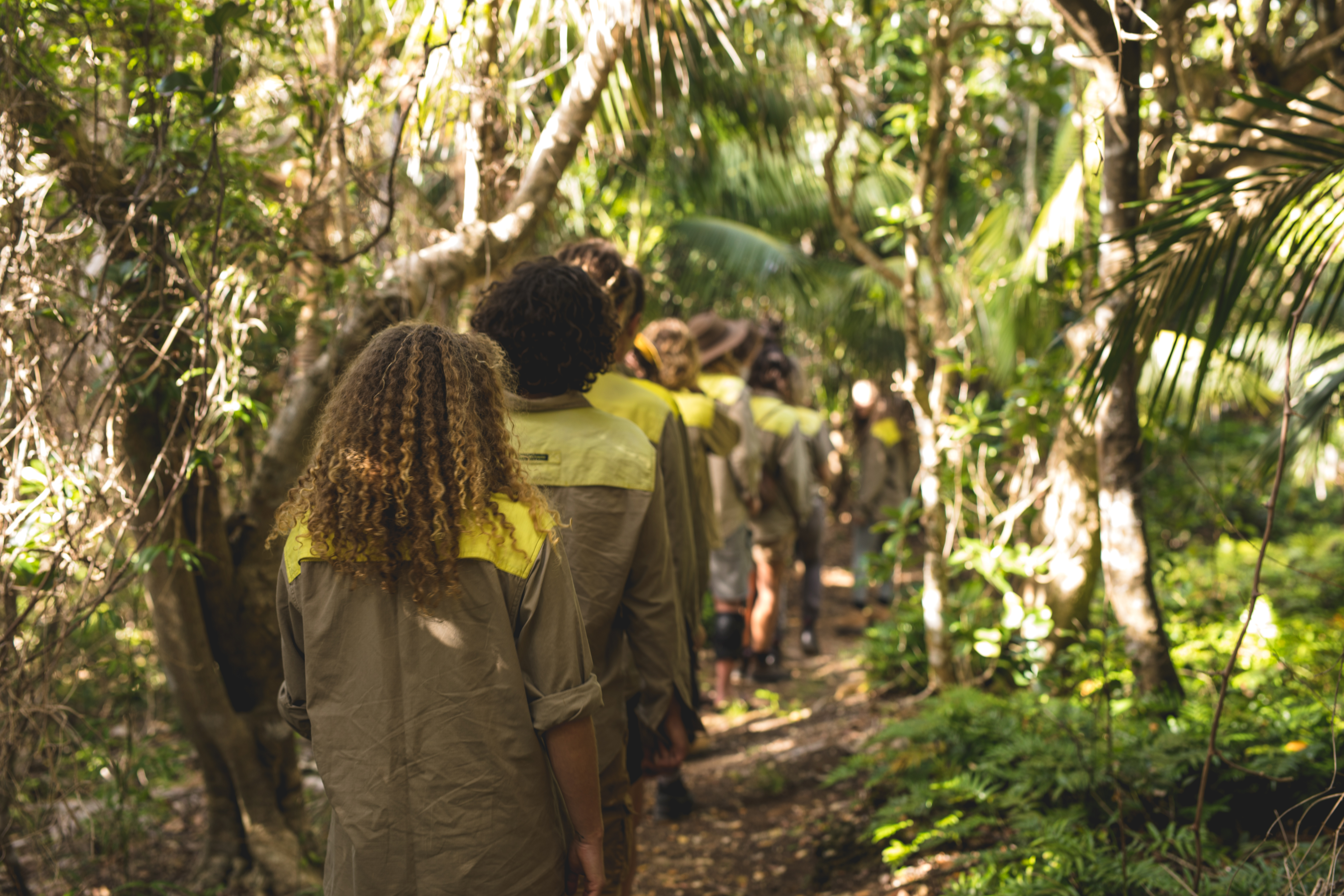Protecting paradise from weeds
Invasive weeds are identified as one of the most serious threats to Lord Howe Island’s biodiversity and World Heritage values.
Over 700 introduced plants have been recorded on Lord Howe Island, mostly in gardens. Of these, 270 have recognised invasive characteristics. Currently, 68 invasive species are declared noxious for Lord Howe Island, out of 156 declared for all of New South Wales.
Lord Howe Island Weed Eradication Program
The Lord Howe Island Weed Management Strategy 2016 to 2025 aims to reduce threats posed by invasive weeds to the Island’s natural environment, human health and agricultural capacity.
Approaches to weed management on Lord Howe Island include prevention, early detection, monitoring, control and eradication.
The Lord Howe Island Board has implemented an ambitious program to eradicate at least 25 priority invasive weeds. The LHI Weed Eradication Program Results show that within a short ten-year period between 2004 and 2014, the impact of dense and widespread weed infestations was significantly reduced by 80% across 1,164 hectares of the Island.
This has been achieved through the investment of $6.4 million dollars and over 129,000 hours of grid search. Helicopter winch and helicopter lance spray programs have been successfully trialled to access weeds on cliffs and rugged terrain.
Our achievements
10 Years ago | The Lord Howe Island Board embarked on the ambitious challenge of eradicating 25 priority weeds. |
6.4 M dollars invested | The Lord Howe Island Board ($1.8M) and State and Federal Government ($4.6M) have invested a total of $6.4 million dollars. |
2 M weeds removed | Over two million weeds have been removed (seedling to mature weeds) from the Island since 2004. |
6 weeds eradicated | Six invasive weeds eradicated - Cats Claw Vine, Cocos Palm, French Broom, Potato Vine, Tipuana, and Turkey Rhubarb. |
80 percent reduction | Weed populations have reduced by 80%. |
Protecting our investment
To protect the investments and gains made, the importation of invasive plants is prohibited under the LHI Regulations 2014 with details provided in the LHI Plant Importation Strategy 2014. The LHI Biosecurity Strategy 2016 identifies quarantine and surveillance measures to exclude weeds, pathogens and exotic pests from entering Lord Howe Island.
Some of the weeds targeted for eradication and numbers of individuals removed over ten years:
- Cherry Guava Psidium cattleianumIUCN (704,266)
- Ground Asparagus Asparagus aethiopicusWONS (687,404)
- Ochna Ochna serrulata (501,062)
- Bridal Creeper Asparagus asparagoidesWONS (110,905)
- Climbing Asparagus Asparagus plumosusWONS (53,804)
- Bitou Bush Chrysanthemoides moniliferaWONS (3,459)
New weed threats are being removed before they become widespread:
- Silky Oak Grevillea robusta (271)
- Kahili Ginger Hedychium gardnerianumIUCN (123)
- Singapore Daisy Wedelia trilobataIUCN (94)
- Leaf Cactus Pereskia aculeata (5)
IUCN – Top 100 Global Invasives Database – International Union for the Conservation of Nature (IUCN)
The outcomes in protecting paradise from weeds has been made possible through the dedication of teams on the ground, including volunteers, the Friends of Lord Howe Island; support from the local community and investment from the following key agencies:
- Caring for our Country (CFOC)
- New South Wales Environmental Trust (NSWET)
- North Coast Local Land Services (NCLLS - formerly NRCMA)
- New South Wales Department of Primary Industries - Weeds Action Plan (WAP)
- Foundation for National Parks (FNP)
- Lord Howe Island Board (LHIB)
The weed eradication program was forecast to be achieved in 30 years, given adequate resourcing. After ten years of project delivery and data collection, the Lord Howe Island Weed Eradication Program is being reviewed to ensure the program remains adaptable to new technologies and risks and continues a strong eradication trend. The Lord Howe Island Board is preparing a business case to seek ongoing investment and project partners into the next decade to continue this important island conservation program.
Further information
Please see the Publications section for various weed eradication plans, policies and reports:
For further information on the weed program and other Lord Howe Island Board conservation initiatives, see the:

